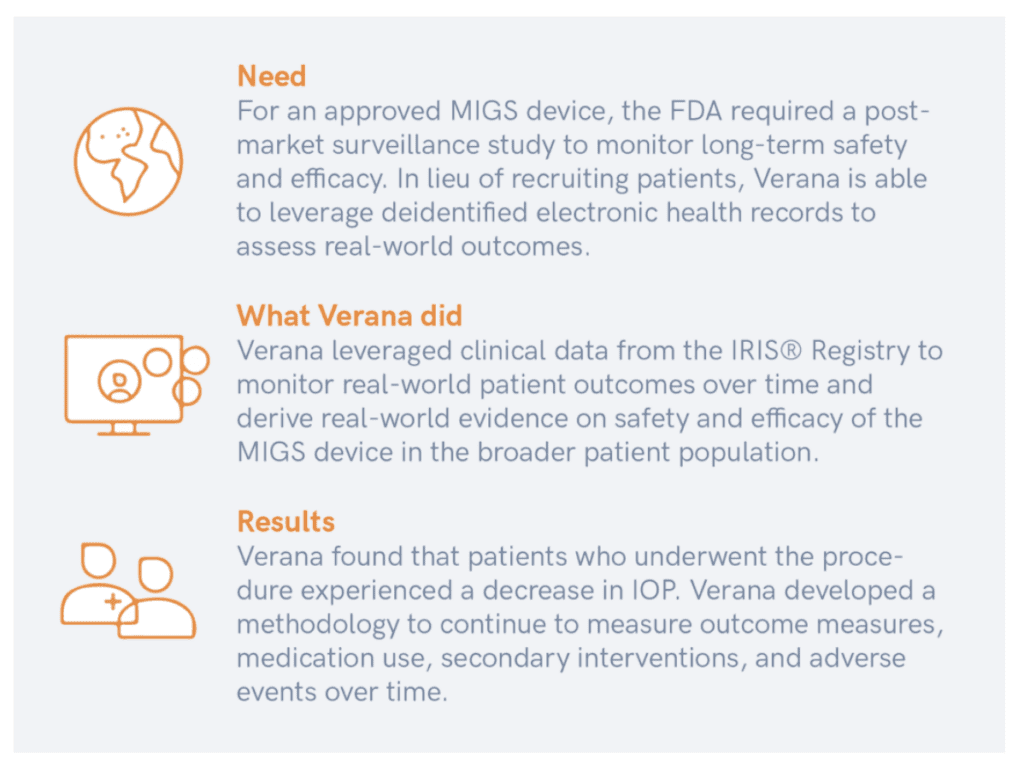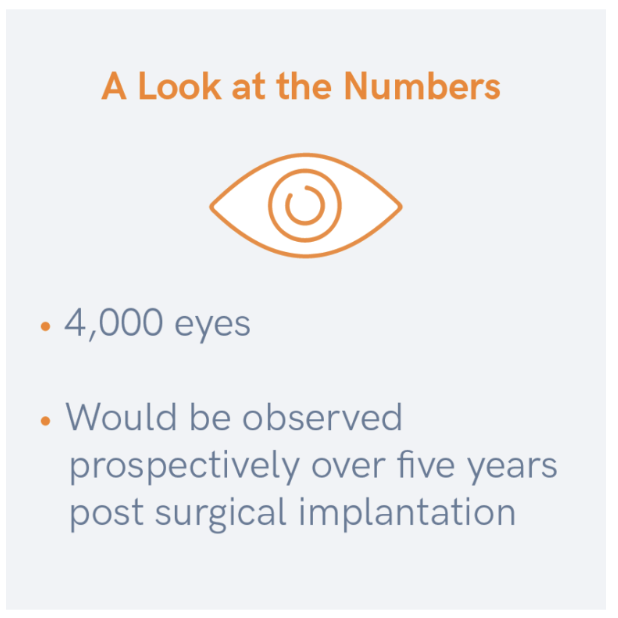Designing a Surveillance Study to Assess Device Outcomes
Author:
Verana Health

When new devices are approved by the FDA and introduced to the market, large-scale postmarketing surveillance is instrumental in certain cases to determine the safety and efficacy of the product in the real world. By leveraging electronic health record (EHR) data in the American Academy of Ophthalmology IRIS® Registry, the largest specialty clinical database in medicine featuring over 60 million patients, Verana Health is able to monitor meaningful clinical outcomes of patients using a newly approved device over time. Last year, Verana partnered with researchers to design a study to assess the real-world efficacy and safety of a new microinvasive glaucoma surgery (MIGS) device.
Why was Verana involved?
The study team collaborated with Verana to develop a postmarket surveillance study for an FDA-approved MIGS device. By applying Verana’s advanced analytics on real-world data from the IRIS Registry, this study could be conducted at an unprecedented scale on a cohort of patients representative of the broader patient population. This includes patients with varying comorbidities and medication use, who may not have been represented in the devices’ original clinical trials. Traditional postmarketing surveillance studies for medical devices require identifying patient participants and collecting data from participants over time, which can be a significant burden on both the participant and their physician; by leveraging the IRIS Registry, Verana is able to derive insights on safety and efficacy from deidentified electronic health records.

What did Verana do?
Verana designed a surveillance study based on data available in the IRIS Registry to monitor over 4,000 eyes over the course of five years post device use. Verana can determine the mean intraocular pressure (IOP) and change in IOP from baseline over time to assess effectiveness, while also monitoring adverse events to assess device safety. Verana is able to derive outcomes such as IOP, visual acuity, and adverse events by processing unstructured data in electronic health records. Verana’s algorithms are able to extract, process, and tag phrasing while taking note context into account to accurately standardize and classify this information.
What did Verana find?
Verana found that patients who had the MIGS device experienced a decrease in IOP in the 30 days after implantation, demonstrating Verana’s ability to characterize real-world outcomes and providing a launch pad for a long-term efficacy study. By developing this study framework, Verana has shown how real-world registry data can be used to better address the safety and effectiveness of new FDA-approved devices in a real-world patient population compared to a traditional postmarketing surveillance study.
In Conclusion
Verana is uniquely able to derive insights to determine long-term safety and effectiveness of treatments using real-world data from the IRIS Registry. These insights are generated with a larger and more representative patient population than is used in traditional surveillance studies, providing a better indicator for device safety and effectiveness while also potentially reducing the time and cost burden associated with traditional surveillance studies. By accelerating and enhancing postmarket surveillance studies, Verana can help ensure the safety of newly-available treatments for patients as quickly as possible.
“A Description of a Non-Interventional Study Design Based Upon Data Extracted from an EHR-based Registry to Assess Long-term Real World Outcomes with Ophthalmic Devices” was presented at the American Academy of Ophthalmology Annual Meeting in October 2018.

Let's Accelerate Research Together
To learn more about Verana Health, please fill out the information below and our team will follow up with you as soon as possible.

